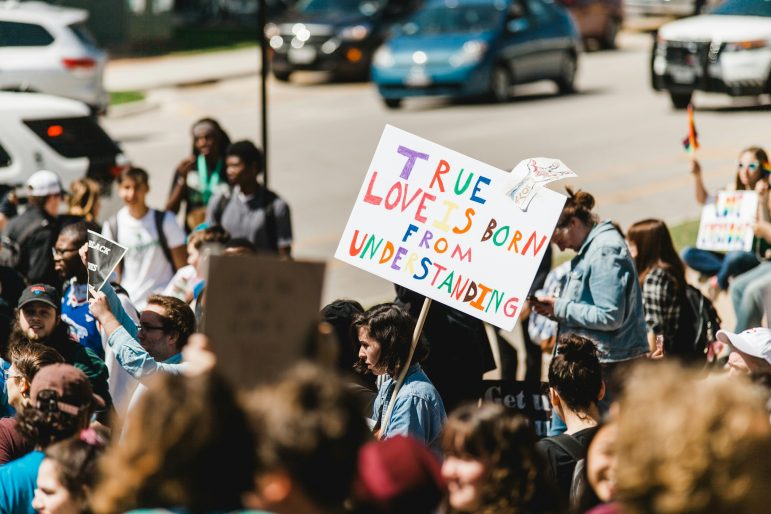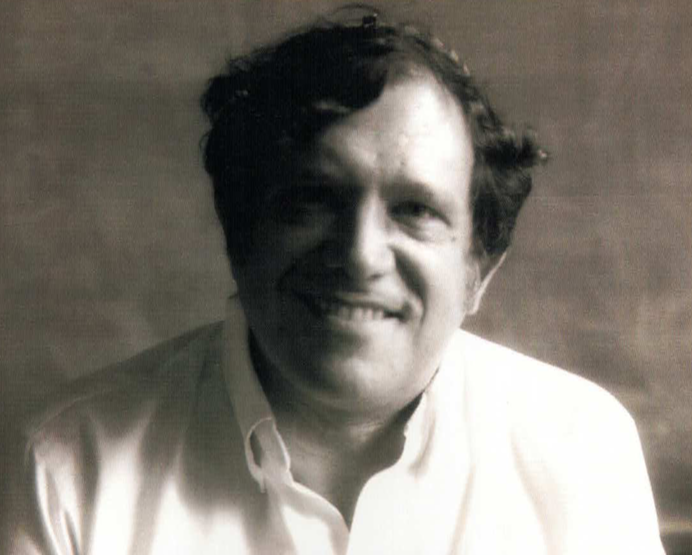
Michael Lerner will go down in history as one of our country’s great thinkers. Tikkun will long be recognized as the vehicle through which Michael and other great thinkers of our time could share their understanding in ways they were unable to do anywhere else. Their influence has been profound. Both Michael and the magazine have combined analysis, vision, and strategy—all three of which are vitally important if there is to be any hope of real change. And Michael never lost sight of the individual while addressing the big issues.
Much of the mainstream and conservative religious establishment has long obsessed with individual morality while ignoring the immorality of capitalism, imperialism, patriarchy, militarism, and other societal institutions. Meanwhile, some on the left who recognized this systemic immorality would belittle the importance of individual morality. Michael understood that both were important. Rather than believing that the ends justified the means, he recognized that means and ends were inherently connected. He also recognized how the entire capitalist system—based on individual greed, competition, and materialism—actually encouraged much of the individual immorality condemned by the very people who supported that system.
I never got the impression that Michael was a strict pacifist, but he always had an acute recognition of the importance of strategic nonviolent action and nonviolent conflict resolution. Long before Erica Chenoweth and other strategic analysts provided the empirical data demonstrating how unarmed civil resistance was more powerful than war in bringing down dictatorships and challenging injustice, Michael—through both his own activism and his knowledge of history—understood its power. He recognized that not only were nonviolent methods better at building broad-based popular movements and undermining the forces of oppression, but that nonviolent methods would more likely result in nonviolent ends. Instead of tearing societies apart, it could bring people together. Instead of instilling the message that power comes through the barrel of a gun, it demonstrated that power came out of ordinary people engaging in massive noncooperation, public protests, strikes, boycotts, and more. It was also a demonstration in his faith that people—not institutions, not armies, not governments—would ultimately set things right.
At a time when popular movements in this country against neoliberal globalization, economic inequality, and racial injustice have been undermined by (mostly white middle-class) radicals insisting on a ‘diversity of tactics” (i.e., street fighting, vandalism, etc.), it is critical to recognize that real radicalism—in the best sense of the word—comes not from emulating the violence of the state, but choosing one’s own weapons systems of mass noncooperation and nonviolent civil resistance. This is not a sentimental pacifism or a naïve belief that the oppressors will somehow see the evil of their ways and convert, but a recognition that those who engage in any kind of campaign—whether it be military, electoral, or nonviolent direct action—must be strategic in their thinking. Being right is never enough. This points to another great legacy of Michael and of Tikkun—morality is important, but so is smart strategic thinking.
Much has been said about how Michael and the magazine played a critical role in bringing forth a pro-Israel/pro-peace agenda when much of the Jewish community and even many non-Jewish liberals were embracing not just hawkish but effectively racist views towards the Palestinians. Michael has long recognized that Palestinian rights and Israeli security were not mutually exclusive but mutually dependent on the other. He has been unhesitant at calling out unfair attacks on Israel and any manifestations of anti-Semitism in criticism of Zionism while forcefully challenging the oppression and racism by the Israeli government and the ways the United States has encouraged the more reactionary and militaristic elements in the Jewish state. He recognized that Zionism has had elements of both a national liberation struggle and a colonial settler movement and has sought to strengthen the former while minimizing harms brought about by the latter. His stature helped create a reference point by which thoughtful critics of the Israeli occupation found support and vindication. Despite growing awareness of intersectionalities regarding race, gender, and class, even the more “woke” segments of the activist community have not taken anti-Semitism seriously enough. False allegations of anti-Semitism by both rightwing and mainstream Zionist groups against those opposed to the Israeli occupation has created a “crying wolf” phenomenon whereby it has become harder to challenge real anti-Semitism in the growing pro-Palestinian community. Michael and Tikkun have provided a means of discerning what’s real and what’s not, making both the fight for Palestinian rights and the fight against anti-Semitism stronger.
Under Michael’s leadership, Tikkun provided the kinds of articles difficult to find anywhere else. The magazine would look at little known yet extremely important global conflicts, such as Morocco’s forcible takeover of the nation of Western Sahara—the other US-backed occupation few people know about. It addressed the global debt crisis in new and important ways. It tackled important strategic questions on how the left could better impact policy. It examined how identity politics can be both empowering and divisive. It recognized earlier than most the critical importance of addressing climate change and providing better stewardship for our planet. It addressed personal issues of faith, morality, psychology, philosophy and more. It provided important analyses of the great threats facing humanity while providing reasons for hope. It was a source for understanding and inspiration which led thousands to look forward to each issue. And, in a time of social atomization, it provided a community for which so many of us longed.
Tikkun, like much of the media on the left, has done a great service in exposing the fabrications used to justify U.S. imperialism over the decades, not just by Republican administrations, but by many Democrats as well. In the critical months prior to the U.S. invasion of Iraq, Joe Biden, Hillary Clinton, John Kerry, Chuck Schumer, and some other Democratic leaders threw their weight behind the Bush administration in order to undermine the global antiwar movement and reject the pleas by the vast majority of Mideast scholars and mainline religious leaders to not launch an illegal, unnecessary, and predictably disastrous war based upon lies. Unfortunately, this had led to a kind of cynicism which has led some on the left into a reactive posture of assuming that virtually every foreign policy initiative by the United States is rooted in imperialism and to dismiss concerns about human rights abuses and even war crimes by “anti-imperialist” governments as U.S. propaganda.
In the not-so-distant recent past, most countries and popular movements opposing U.S. imperialism were relatively progressive, even if sometime autocratic. Today, however, the leading forces challenging U.S. hegemony—the Salafists (Al-Qaeda, ISIS), Iran, Putin’s Russia—are decidedly reactionary and many governments originally rooted in socialist movements (China, Nicaragua, Venezuela) now can hardly be considered progressive either. Just as many liberal supporters of Israel still view that country as if it is still in the heyday of Labor Zionism rather than the rightwing racist entity it has become, many leftists are failing to recognize the nature of many of the forces challenging U.S. hegemony. This does not mean we shouldn’t continue to oppose U.S. imperialism, expose how U.S. policy in many cases have given rise to these reactionary tendencies, and push for non-military alternatives to challenging these threats, but we must not be naïve regarding the nature of some of the forces the United States is currently battling. This is why the progressive yet nuanced perspectives offered by Tikkun are sorely needed.
Many of us raised white and middle class in Michael’s generation were radicalized by the Vietnam War. We began by wondering why a country dedicated to freedom, justice, and democracy around the world would be waging such an evil war. Upon further reflection we realized that Vietnam was but one manifestation of U.S. imperialism. We then began to wonder why a country with such great domestic institutions and policies would have such a terrible foreign policy. Upon further reflection, we were able to recognize the deep injustices within American society. It is no accident therefore that the Black Power movement, the Chicano rights movement, the second wave of feminism, the modern environmental movement, the LGBTQ movement, and the counter-culture all grew out of that period. It underscored the recognition that any system that would produce the horrors inflicted upon Vietnam and would continue prosecuting such an illegal, immoral, and unwinnable war despite such widespread opposition was fundamentally flawed and needed to be radically changed.
We are starting to see a similar radical transformation among today’s youth through the threat from climate change. The danger is obvious and the solutions are relatively clear, yet society is failing to take the urgent actions needed due to inherent flaws in the political and economic system. This is leading young people to question everything from consumption to the gender binary. For the first time, Americans between 18 and 35 have a more positive view of socialism than they do of capitalism. And at stake is alot more than the risk of being drafted to fight an unjust war. Human survival is at stake. More Americans have taken part in mass protests over the past six years than at any time in U.S. history, including the 1960s. We are entering a critical period in human history, which makes the prophetic voices found in Tikkun more important than ever.
We owe a great debt to Michael for making Tikkun and its community possible. He will be remembered not just for being smart, but for being wise. His holistic approach to life, as both an individual and as a member of society, will long be an inspiration for the world.
